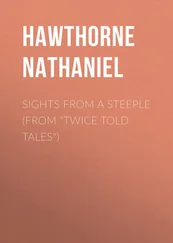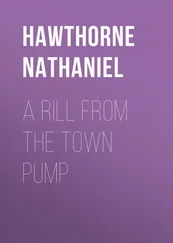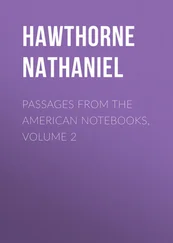Nathaniel Hawthorne - Passages from the English Notebooks, Complete
Здесь есть возможность читать онлайн «Nathaniel Hawthorne - Passages from the English Notebooks, Complete» — ознакомительный отрывок электронной книги совершенно бесплатно, а после прочтения отрывка купить полную версию. В некоторых случаях можно слушать аудио, скачать через торрент в формате fb2 и присутствует краткое содержание. Жанр: История, literature_19, foreign_antique, foreign_prose, Путешествия и география, на английском языке. Описание произведения, (предисловие) а так же отзывы посетителей доступны на портале библиотеки ЛибКат.
- Название:Passages from the English Notebooks, Complete
- Автор:
- Жанр:
- Год:неизвестен
- ISBN:нет данных
- Рейтинг книги:4 / 5. Голосов: 1
-
Избранное:Добавить в избранное
- Отзывы:
-
Ваша оценка:
- 80
- 1
- 2
- 3
- 4
- 5
Passages from the English Notebooks, Complete: краткое содержание, описание и аннотация
Предлагаем к чтению аннотацию, описание, краткое содержание или предисловие (зависит от того, что написал сам автор книги «Passages from the English Notebooks, Complete»). Если вы не нашли необходимую информацию о книге — напишите в комментариях, мы постараемся отыскать её.
Passages from the English Notebooks, Complete — читать онлайн ознакомительный отрывок
Ниже представлен текст книги, разбитый по страницам. Система сохранения места последней прочитанной страницы, позволяет с удобством читать онлайн бесплатно книгу «Passages from the English Notebooks, Complete», без необходимости каждый раз заново искать на чём Вы остановились. Поставьте закладку, и сможете в любой момент перейти на страницу, на которой закончили чтение.
Интервал:
Закладка:
January 9th. – I dined at Mr. William Browne's (M. P.) last, evening with a large party. The whole table and dessert service was of silver. Speaking of Shakespeare, Mr. – said that the Duke of Somerset, who is now nearly fourscore, told him that the father of John and Charles Kemble had made all possible research into the events of Shakespeare's life, and that he had found reason to believe that Shakespeare attended a certain revel at Stratford, and, indulging too much in the conviviality of the occasion, he tumbled into a ditch on his way home, and died there! The Kemble patriarch was an aged man when he communicated this to the Duke; and their ages, linked to each other; would extend back a good way; scarcely to the beginning of the last century, however. If I mistake not, it was from the traditions of Stratford that Kemble had learned the above. I do not remember ever to have seen it in print, – which is most singular.
Miss L – has an English rather than an American aspect, – being of stronger outline than most of our young ladies, although handsomer than English women generally, extremely self-possessed and well poised without affectation or assumption, but quietly conscious of rank, as much so as if she were an Earl's daughter. In truth, she felt pretty much as an Earl's daughter would do towards the merchants' wives and daughters who made up the feminine portion of the party.
I talked with her a little, and found her sensible, vivacious, and firm-textured, rather than soft and sentimental. She paid me some compliments; but I do not remember paying her any.
Mr. J – 's daughters, two pale, handsome girls, were present. One of them is to be married to a grandson of Mr. – , who was also at the dinner. He is a small young man, with a thin and fair mustache… and a lady who sat next me whispered that his expectations are 6,000 pounds per annum. It struck me, that, being a country gentleman's son, he kept himself silent and reserved, as feeling himself too good for this commercial dinner-party; but perhaps, and I rather think so, he was really shy and had nothing to say, being only twenty-one, and therefore quite a boy among Englishmen. The only man of cognizable rank present, except Mr. – and the Mayor of Liverpool, was a Baronet, Sir Thomas Birch.
January 17th. – S – and I were invited to be present at the wedding of Mr. J – 's daughter this morning, but we were also bidden to the funeral services of Mrs. G – , a young American lady; and we went to the "house of mourning," rather than to the "house of feasting." Her death was very sudden. I crossed to Rock Ferry on Saturday, and met her husband in the boat. He said his wife was rather unwell, and that he had just been sent for to see her; but he did not seem at all alarmed. And yet, on reaching home, he found her dead! The body is to be conveyed to America, and the funeral service was read over her in her house, only a few neighbors and friends being present. We were shown into a darkened room, where there was a dim gaslight burning, and a fire glimmering, and here and there a streak of sunshine struggling through the drawn curtains. Mr. G – looked pale, and quite overcome with grief, – this, I suppose, being his first sorrow, – and he has a young baby on his hands, and no doubt, feels altogether forlorn in this foreign land. The clergyman entered in his canonicals, and we walked in a little procession into another room, where the coffin was placed.
Mr. G – sat down and rested his head on the coffin: the clergyman read the service; then knelt down, as did most of the company, and prayed with great propriety of manner, but with no earnestness, – and we separated.
Mr. G – is a small, smooth, and pretty young man, not emphasized in any way; but grief threw its awfulness about him to-day in a degree which I should not have expected.
January 20th. – Mr. Steele, a gentleman of Rock Ferry, showed me this morning a pencil-case formerly belonging to Dr. Johnson. It is six or seven inches long, of large calibre, and very clumsily manufactured of iron, perhaps plated in its better days, but now quite bare. Indeed, it looks as rough as an article of kitchen furniture. The intaglio on the end is a lion rampant. On the whole, it well became Dr. Johnson to have used such a stalwart pencil-case. It had a six-inch measure on a part of it, so that it must have been at least eight inches long. Mr. Steele says he has seen a cracked earthen teapot, of large size, in which Miss Williams used to make tea for Dr. Johnson.
God himself cannot compensate us for being born for any period short of eternity. All the misery endured here constitutes a claim for another life, and, still more, all the happiness; because all true happiness involves something more than the earth owns, and needs something more than a mortal capacity for the enjoyment of it.
After receiving an injury on the head, a person fancied all the rest of his life that he heard voices flouting, jeering, and upbraiding him.
February 19th. – I dined with the Mayor at the Town Hall last Friday evening. I sat next to Mr. W. J – , an Irish-American merchant, who is in very good standing here. He told me that he used to be very well acquainted with General Jackson, and that he was present at the street fight between him and the Bentons, and helped to take General Jackson off the ground. Colonel Benton shot at him from behind; but it was Jesse Benton's ball that hit him and broke his arm. I did not understand him to infer any treachery or cowardice from the circumstance of Colonel Benton's shooting at Jackson from behind, but, suppose it occurred in the confusion and excitement of a street fight. Mr. W. J – seems to think that, after all, the reconciliation between the old General and Benton was merely external, and that they really hated one another as before. I do not think so.
These dinners of the Mayors are rather agreeable than otherwise, except for the annoyance, in my case, of being called up to speak to a toast, and that is less disagreeable than at first. The suite of rooms at the Town House is stately and splendid, and all the Mayors, as far as I have seen, exercise hospitality in a manner worthy of the chief magistrates of a great city. They are supposed always to spend much more than their salary (which is 2,000 pounds) in these entertainments. The town provides the wines, I am told, and it might be expected that they should be particularly good, – at least, those which improve by age, for a quarter of a century should be only a moderate age for wine from the cellars of centuries-long institutions, like a corporate borough. Each Mayor might lay in a supply of the best vintage he could find, and trust his good name to posterity to the credit of that wine; and so he would be kindly and warmly remembered long after his own nose had lost its rubicundity. In point of fact, the wines seem to be good, but not remarkable. The dinner was good, and very handsomely served, with attendance enough, both in the hall below – where the door was wide open at the appointed hour, notwithstanding the cold – and at table; some being in the rich livery of the borough, and some in plain clothes. Servants, too, were stationed at various points from the hall to the reception-room; and the last one shouted forth the name of the entering guest. There were, I should think, about fifty guests at this dinner. Two bishops were present. The Bishops of Chester and New South Wales, dressed in a kind of long tunics, with black breeches and silk stockings, insomuch that I first fancied they were Catholics. Also Dr. McNeil, in a stiff-collared coat, looking more like a general than a divine. There were two officers in blue uniforms; and all the rest of us were in black, with only two white waistcoats, – my own being one, – and a rare sprinkling of white cravats. How hideously a man looks in them! I should like to have seen such assemblages as must have gathered in that reception-room, and walked with stately tread to the dining-hall, in times past, the Mayor and other civic dignitaries in their robes, noblemen in their state dresses, the Consul in his olive-leaf embroidery, everybody in some sort of bedizenment, – and then the dinner would have been a magnificent spectacle, worthy of the gilded hall, the rich table-service, and the powdered and gold-laced servitors. At a former dinner I remember seeing a gentleman in small-clothes, with a dress-sword; but all formalities of the kind are passing away. The Mayor's dinners, too, will no doubt be extinct before many years go by. I drove home from the Woodside Ferry in a cab with Bishop Burke and two other gentlemen. The Bishop is nearly seven feet high.
Читать дальшеИнтервал:
Закладка:
Похожие книги на «Passages from the English Notebooks, Complete»
Представляем Вашему вниманию похожие книги на «Passages from the English Notebooks, Complete» списком для выбора. Мы отобрали схожую по названию и смыслу литературу в надежде предоставить читателям больше вариантов отыскать новые, интересные, ещё непрочитанные произведения.
Обсуждение, отзывы о книге «Passages from the English Notebooks, Complete» и просто собственные мнения читателей. Оставьте ваши комментарии, напишите, что Вы думаете о произведении, его смысле или главных героях. Укажите что конкретно понравилось, а что нет, и почему Вы так считаете.












